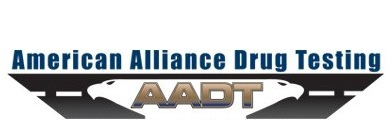AADT Updates Industry Concerning Central Drug Test Results Clearinghouse
February 26, 2013
RE: An Open Letter to Our Valued Collection Sites
Dear Collection Site Managers and Labs:
American Alliance Drug Testing (AADT) recently sent out a notice to all our contracted collection site partners addressing the concerns and costs associated with errors created during the collection process. As stated in that letter, we no longer have the luxury to accept these collection errors and it is especially difficult to correct errors as a cost of doing business and we must share these costs with those responsible. Interestingly, we received a wide range of responses to our position. Frankly, 95% of the responses were positive as businesses within our industry appear to understand the need for personal responsibility. Make no mistake; our concerns are not just about the direct cost of errors, but the serious liability errors in the future can create for us all with the coming national clearinghouse for controlled substance and alcohol test results of commercial vehicle operators.
Our combined efforts are crucial to enhancing the safety of U.S. highways by reducing accidents and injuries involving the misuse of alcohol or use of controlled substances by operators of commercial motor vehicles (CMV). While our industry has made great strides in keeping impaired CMV operators off our roads, a provision in the new highway bill signed by President Obama on July 6, of 2012 – Moving Ahead for Progress in the 21st Century or MAP-21, will require all of us to further insure the accuracy of our combined efforts involving drug and alcohol testing.
After many years of prodding from the trucking and bus industry, the National Transportation Safety Board, and the U.S. Government Accountability Office, Congress has finally directed the Federal Motor Carrier Safety Administration (FMCSA) to establish a national clearinghouse for controlled substance and alcohol test results (including refusals) of CMV operators. The specific language of the legislation can be found in MAP-21 under Subtitle D, titled – Safe Roads Act of 2012. You can also find a copy of this new legislation (Sec. 32402) on our AADrugTesting.com website.
FMCSA has submitted a copy of their Notice of Proposed Rulemaking (NPRM) to the Office of the Secretary of Transportation beginning the process of implementing this mandate. We expect the NPRM to be published in the Federal Register by July or August of this year.
Some of the changes that will occur from this legislation and of specific concern, are:
- A MRO, employer, service agent, and other appropriate person as determined by the Secretary of Transportation shall promptly submit any record generated after the clearinghouse is initiated.
- Release of information from the clearinghouse shall comply with the Privacy Act of 1974 and applicable sections of the Fair Credit Reporting Act.
- Establishes new data quality and security standards for timely and accurate data reporting.
- Establishes a dispute and appeals process for CMV operators.
- An individual with a record in the clearinghouse has a cause of action for any inappropriate use of information included in the clearinghouse.
- Exposes employers, employees, MRO’s, service agents and those other service agents that are contracted with to civil and criminal penalties for violations of the law. Government mandated penalties can be as much as $10,000 and up to 90 days in jail per occurrence. See 49 USC, Sec, 521(b)(2)(C) and (b)(6)(B). Separate independent civil ligation costs could be more than ten times this amount.
Once the clearinghouse is established, state driver licensing agencies will be required to query the database prior to issuing a Commercial Driver License or renewing one. Employers will also be required to query the database on all new hires and again annually on each employed driver.
In July of last year, following the signing of this law by President Obama, we decided to bring all collection site management and accounting back in-house under staff over-sight. We realize that the vast majority of our contracted collection sites generate few if any errors that are not easily corrected and we appreciate your diligence in following the regulations and guidelines which define our industry. However, there are collection sites that continue to produce an unacceptable level of challenging errors during the collection process. It should be apparent to you that the stakes will be elevated under the new clearinghouse model and the consistent errors that jeopardize a client’s livelihood by a collector’s lack of attention or training we now contract with will likely not be tolerated within the industry.
We believe it is important that we all work cooperatively to minimize potential future exposure to civil and criminal liability from avoidable errors that could professionally damage our clients. While many of us in the industry have long supported the creation of the clearinghouse, collectively we now face increased scrutiny – on a relatively transparent national level.
Professionally run collection sites are one of the key components for effective and efficient drug and alcohol testing. Marginal efforts will likely undue those that are unwilling to change. We intend to align ourselves with those that understand this important concept.
Also, AADT is aware and frankly disturbed, as should the professional collection industry be, of a growing trend with some drug testing programs that have cultivated a scheme which allows “collector” qualification training “at home.” These sham programs encourage all of their participating members to “collect on-site and will train personnel to collect in accordance with the regulatory guidelines in Parts 40 and 382.” Typically, training as the collector is either a spouse or relative of the person subject (driver) to random testing. This practice undermines the credibility and veracity of the entire federal drug and alcohol testing program. The language in part 40, subpart C, §40.33 for now unfortunately permits this unethical practice. As collection site fees increase we believe this disturbing practice will accelerate.
We remain steadfast in our commitment to adapting to change and are dedicated to an uncompromising professional standard of integrity and service. We hope our collection site partners believe the same.
American Alliance Drug Testing (AADT) is an operating subsidiary of the California Construction Trucking Association which is actively involved in federal regulatory actions affecting its member motor carriers. We intend to pursue a regulatory solution to close the current loophole in Part 40 that is being exploited by some TPA’s as a cost cutting measure that undermines the goal of effective drug and alcohol testing – enhancing the safety of U.S. highways.
Respectfully,
Lee Brown
Executive Director
California Construction Trucking Association
American Alliance Drug Testing



